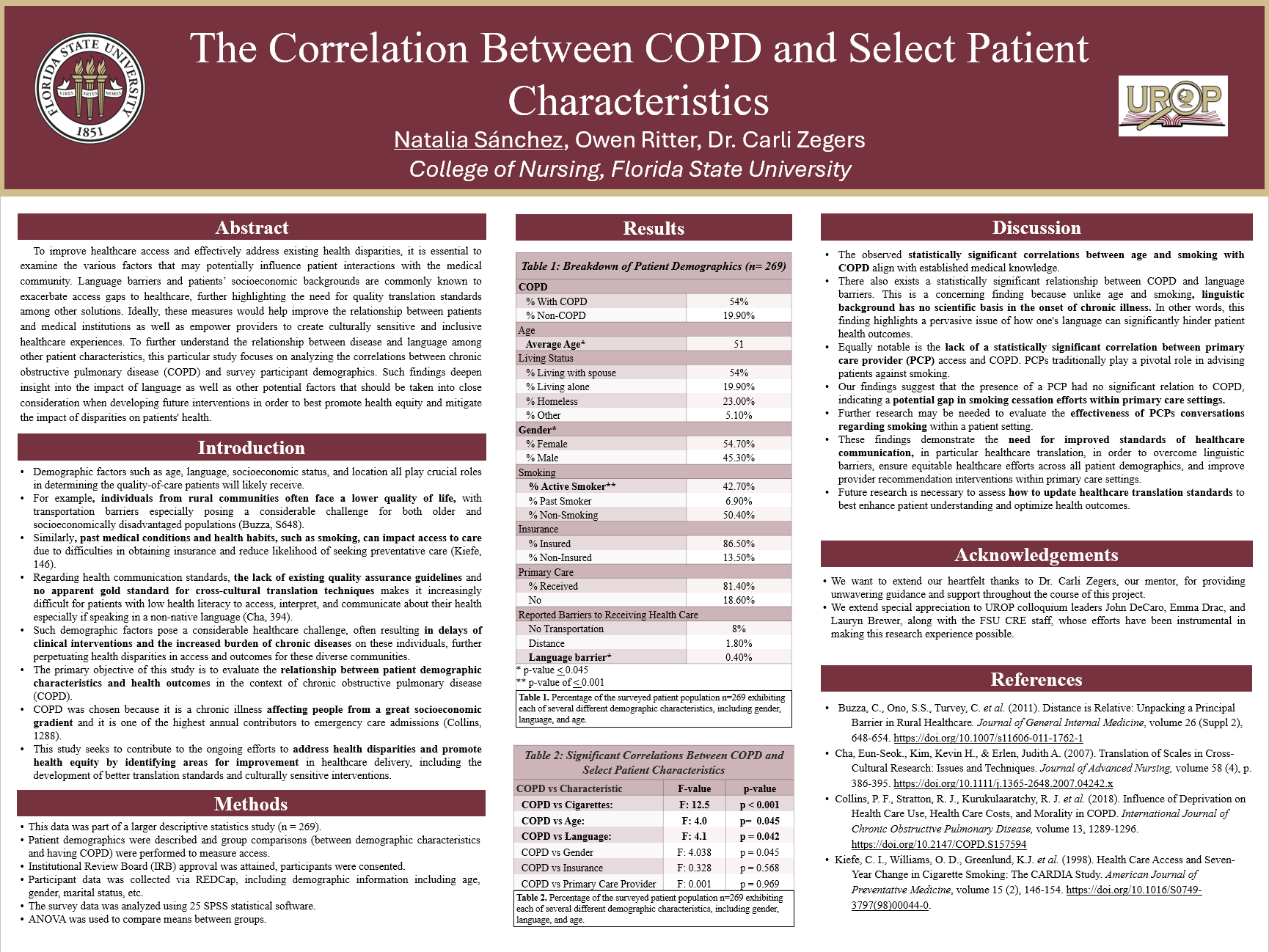Research Symposium
24th annual Undergraduate Research Symposium, April 3, 2024
Natalia Sanchez Poster Session 1: 9:30 am - 10:30 am /241
BIO
Hi, my name is Natalia. I am a sophomore from Lake Worth, Florida, majoring in Biological Science and minoring in French on the pre-medical track. I joined UROP because I value how it empowers undergraduate students interested in conducting research by providing them with the tools, resources, and encouragement that they need to get started and take ownership of their research journeys. Coming from a Hispanic family, I am passionate about healthcare access and addressing linguistic disparities because I have witnessed firsthand the challenges faced by limited English proficiency patients in accessing quality care. My research with Dr. Carli Zegers from the FSU College of Nursing focuses on healthcare translation standards for Spanish-speaking patient populations. By delving into the effectiveness of these standards, particularly in conveying culturally sensitive medical information, we aim to enhance health literacy and outcomes. I am driven to improve communication in healthcare, and I am dedicating myself to learning French to broaden my ability to interact with diverse patients. Through my healthcare research and multilingual background, I aspire to provide inclusive, culturally competent care as a future physician that ensures all patients feel supported and understood, advancing the cause of health equity in diverse sociocultural settings.
The Correlation Between COPD and Select Patient Characteristics
Authors: Natalia Sanchez, Carli ZegersStudent Major: Biological Science
Mentor: Carli Zegers
Mentor's Department: Nursing Mentor's College: College of Nursing Co-Presenters:
Abstract
To improve healthcare access and effectively address existing health disparities, it is essential to examine the various factors that may potentially influence patient interactions with the medical community. Language barriers and patients’ socioeconomic backgrounds are commonly known to exacerbate access gaps to healthcare, further highlighting the need for quality translation standards among other solutions. Ideally, these measures would help improve the relationship between patients and medical institutions as well as empower providers to create culturally sensitive and inclusive healthcare experiences. To further understand the relationship between disease and language among other patient characteristics, this particular study focuses on analyzing the correlations between chronic obstructive pulmonary disease (COPD) and survey participant demographics. Such findings deepen insight into the impact of language as well as other potential factors that should be taken into close consideration when developing future interventions in order to best promote health equity and mitigate the impact of disparities on patients' health.
Keywords: COPD, healthcare access, language, disparities

